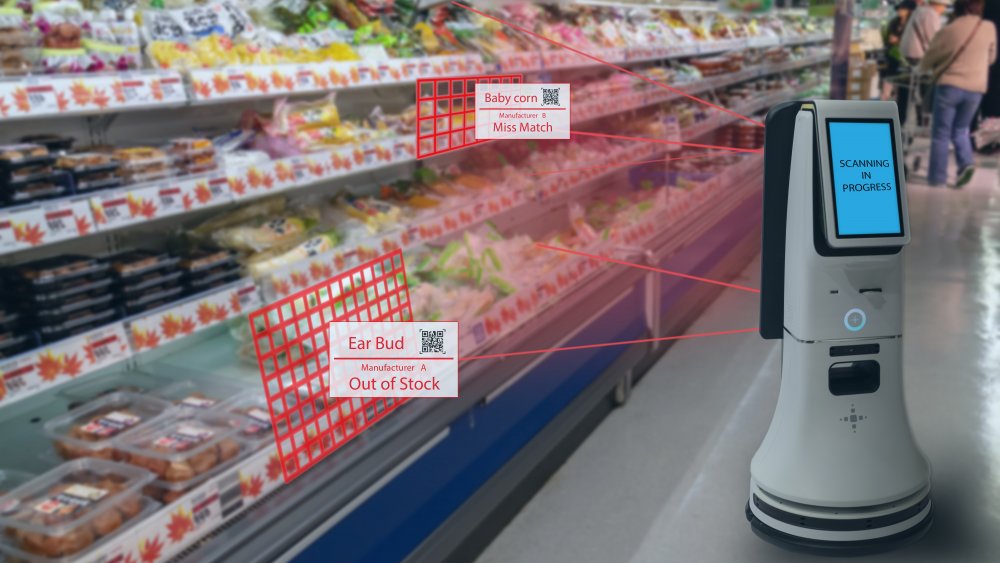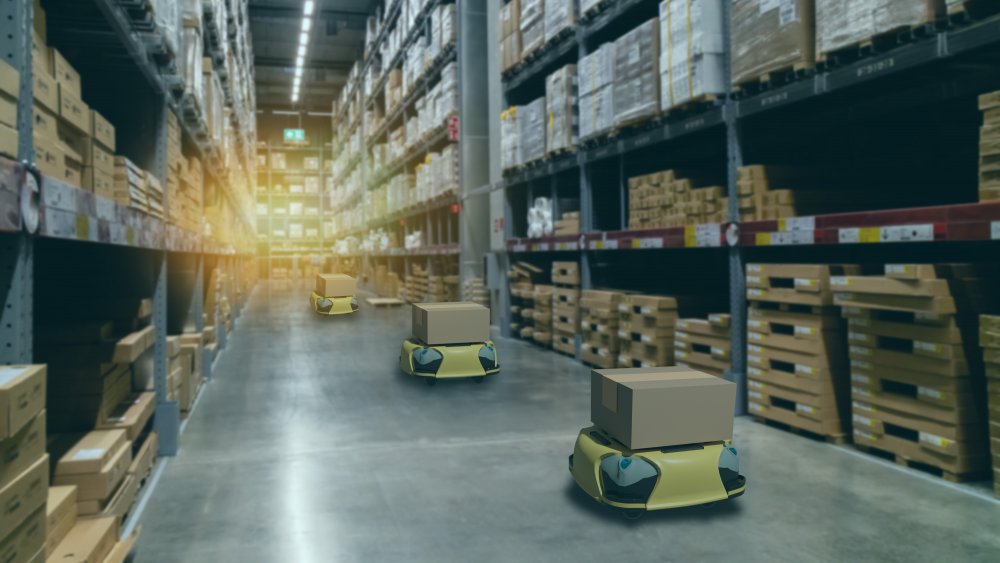The Real Reason Walmart Canceled Its Plans To Let Robots Check Inventory
The Wall Street Journal recently broke the news that Walmart's contract of five years with Bossa Nova Robotics had come to an end. The specific project in which they were engaged was the implementation of six-foot-tall scanning robots to take stock of their inventory. When asked by TechCrunch about why the deal fell through, Sarjoun Skaff, the cofounder of Bossa Nova Robotics, said "I cannot comment on Walmart, however, the pandemic has forced us to streamline our operations and focus on our core technologies." This has resulted in layoffs for the startup.
Why Walmart has stepped away from this half-decade long relationship is unclear, but The Wall Street Journal suggests that because of the increase in online orders, Walmart has more people walking up and down their aisles who can carry out their inventory needs without the need for a high tech solution. After all, if they're going to count their inventory anyway, there's no need to invest more money into a non-problem.
Still, a spokesperson from Walmart reaffirmed their commitment to technological invasion in the space of picking items from shelves: "We will continue testing new technologies and investing in our own processes and apps to best understand and track our inventory and help move products to our shelves as quickly as we can." This can be chalked up as another victim of the coronavirus as just last year, Forbes reported that Walmart was increasing the presence of Bossa Nova robots from 50 to 350 stores.
Robots or humans?
The appearance of robots in the workplace has been a trope in the 2010s. In 2019, Stop & Shop unveiled a pillar with googly eyes and a label cut into the shape of a smile called Marty the Robot. However, before your fear grows too quickly, Asbury Park Press did explain to its readers that the Martys in New Jersey's 40 Stop & Shops only existed to warn customers of slipping hazards and spills. Similarly, the Robotics Industry Association commented in a blog in 2017 that the main purposes of robots in retail was to provide directions and product information to customers, to take inventory, and to deliver products.
Not all stores are as keen as Walmart and Stop & Shop to embrace the gadgetry of the future, however. In 2019, when Walmart was expanding its Bossa Nova experiment, CNN compared Walmart's technophilia with Target's relative uninterest. While Target has indeed installed self-checkouts, Brian Cornell, Target's CEO, stressed that it will not innovate too much further in the foreseeable future: "We really think, even in today's environment, where people are talking about AI and robotics and different elements of technology, the human touch still really matters."
However, as CNN points out, Target stores are much smaller than Walmart ones and require fewer employees to run, meaning that the savings earned from investing in robotic retail are comparatively limited. It wouldn't be surprising, then, if Walmart soon returns to its pursuit of automating parts of its operations.

